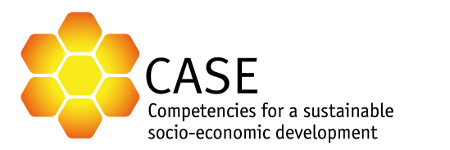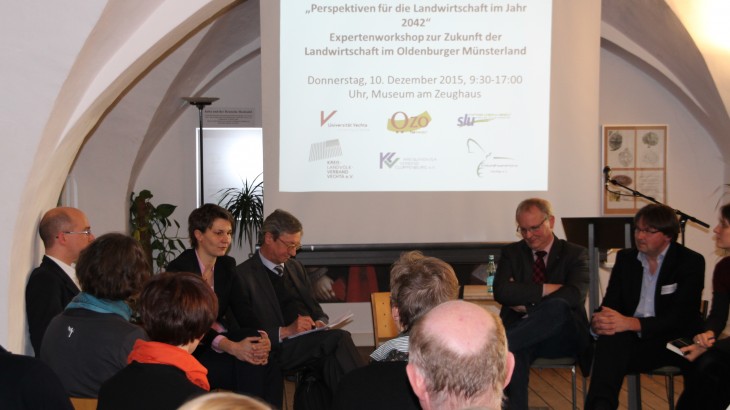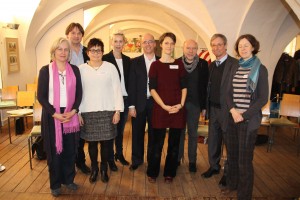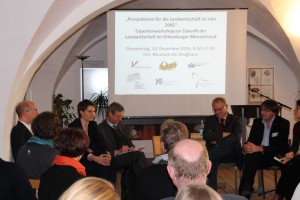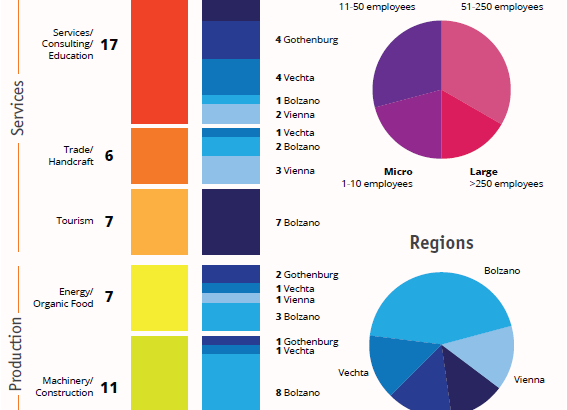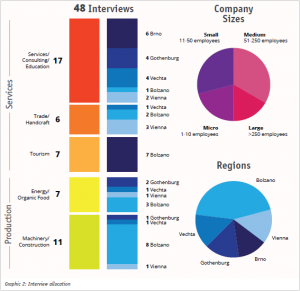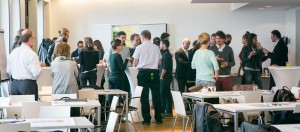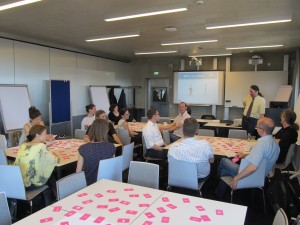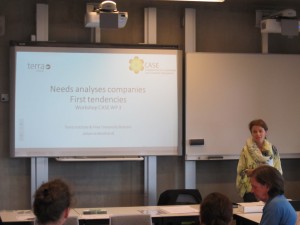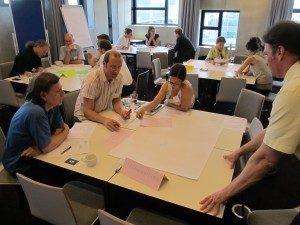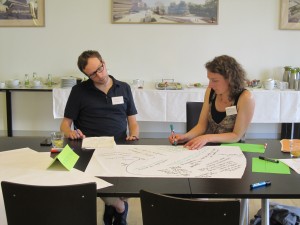The topic sustainability is discussed in many sectors. Especially for agriculture – as an important sector of sustainable development – this topic is of far-ranging importance. What does sustainable agriculture mean especially for the region Oldenburger Münsterland? For this purpose, on Thursday, December 10th, 2015, round about 40 experts from economy, NGOs and the scientific field discussed this question at the „Museum am Zeughaus“ in Vechta.
Prof. Dr. Marco Rieckmann initiated the workshop in his position as the Sustainability Commissioner at the University of Vechta. The workshop was organized in cooperation with the Foundation “Leben & Umwelt” (of the Heinrich-Böll-Stiftung), the Ecumenical Center Oldenburg, the Association for Developmental Politics in Lower Saxony, and local agricultural associations like the “KreislandFrauenverband Vechta”, the “Kreislandvolkverband Vechta” as well as the “Kreislandvolkverband Cloppenburg”.
After an introductive speech by Prof. Dr. Christine Meyer (University of Vechta, Social Work) about the topic “How are we going to feed ourselves in the future?”, the participants discussed topics like the eating and diet habits, the appreciation of food, education and diet-socialization in Kindergarten and Schools as well as the consideration of environmental, social and health criteria in communal feeding. The day continued with more lectures about the following topic: “How can the (world) population be fed in the year 2042?”. This topic was lectured by Prof. Dr. Harald von Witzke (HU Berlin) and Prof. Dr. Alfons Balmann (Leibniz Institute of Agricultural Development in Transition Economies (IAMO)). Harald von Witzke focused on the aspect that the demand for food will increase with the growing world population, while Alfons Balmann described structural changes in the agriculture and also that modern agriculture is not highly accepted in the overall population. In the following discussion, many different approaches for handling the increase in demand of food were brought to attention: an increase in production vs. a reduction of food wasting and a better sharing of food. Concluding, Prof. Dr. Hubert Wiggering (Leibniz Centre for Agricultural Landscape Research (ZALF)) talked about the question, how we can deal with the finite nature of resources. Shortage of resources and the “planetary boundaries” call for a protective handling of resources, as Wiggering said. The following discussion made clear that location-specific efficient forms of sustainable agriculture have to be developed.
This workshop facilitated a dialogue between stakeholders that focus on the future of agriculture in the Oldenburger Münsterland. Even though there were different approaches of how the future of agriculture can be developed sustainably, the participants agreed on the fact that transformation is necessary.
Agriculture in the context of sustainable development certainly is one major future challenge that might be tackled by the future students of the CASE Masters’ programme on Sustainability-driven Entrepreneurship. From the CASE perspective, the workshop was a good starting point to get into contact with one relevant regional sector and its stakeholders.
